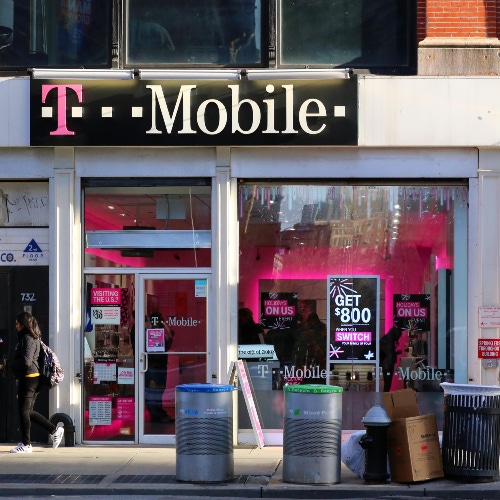
T-Mobile has worked feverishly to prevent the specific terms of its 2.5GHz spectrum leases from seeing the light of day. But the Christian College of Georgia is working to change that.
In a recent filing with the FCC, the college published the full lease agreement that another educational institution signed with T-Mobile. The college argued that it needed to publish the contract – which is publicly available elsewhere – so that its ongoing legal dispute with T-Mobile "is not discussed in a vacuum."
Specifically, the college published T-Mobile's spectrum leasing agreement with the school board of Broward County in southeastern Florida. Although the document doesn't reveal the amount of money T-Mobile pays the school board for the lease, it does spell out the terms of the operator's lease on the school board's spectrum license, including the details of T-Mobile's "right of first refusal" (or ROFR). That language has become important as 2.5GHz license owners like the Christian College of Georgia attempt to sell their licenses to investment companies and others.
In response, T-Mobile has moved to block such sales. And that's what prompted the Christian College of Georgia to complain about T-Mobile's actions to the FCC. In its latest filing, the college asked the FCC to allow it to sell its license to an investment company called WCO.
Terms and conditions
T-Mobile's lease with the Broward County school board contains plenty of legalese: "During the Term and for the twelve (12) months following the expiration or termination of this Agreement, unless this Agreement is terminated as a result of Sprint's [T-Mobile acquired Sprint in 2020] default or if this Agreement is terminated by Sprint before 30 years, Sprint or Sprint's designee will have a ROFR with respect to any and all bona fide offers, of any kind, received by Licensee to acquire the License (if FCC Rules allow it and the Licensee desires to sell), lease or otherwise use any of the capacity on the Channels (or any part thereof) in any commercial manner, or to acquire an option to acquire, lease or otherwise commercially use any of the capacity on the Channels (or any part thereof) from a third party which offer Licensee otherwise intends to accept," according to the document.
But the terms of the lease are important because T-Mobile currently pays rent on around 1,800 such leases all over the country. Indeed, such leases form the foundation of the operator's speedy midband 5G network. Further, the operator has been suing some 2.5GHz spectrum license owners – such as the St. Lucie County school district in Florida – to prevent them from selling the licenses that it is leasing.
Figure 1:  (Source: Robert K. Chin - Storefronts/Alamy Stock Photo)
(Source: Robert K. Chin - Storefronts/Alamy Stock Photo)
Rule changes and ramifications
Due to FCC rules that originated in the 1960s, T-Mobile does not own many of the 2.5GHz spectrum licenses that it is using for its midband 5G network. Instead, they are owned by educational institutions like the Christian College of Georgia, the St. Lucie County school district and the school board of Broward County.
To use the licenses for commercial applications such as 5G, T-Mobile and its corporate predecessors like Clearwire and Sprint inked long-term leases on the licenses.
In an effort to straighten out such tangled agreements, the FCC ruled in 2020 that educational institutions can sell their licenses; previously they were legally prevented from doing so. As a result, T-Mobile has so far purchased more than 200 of the estimated 2,000 total 2.5GHz licenses that it leases, according to previous reporting from Light Reading.
Trade secrets
However, the operator has been working to prevent 2.5GHz spectrum license owners, like the Christian College of Georgia, from disclosing the terms of their lease agreements with the operator. Indeed, according to a detailed report on the topic by FierceWireless, T-Mobile considers such details "trade secrets" and warns that "disclosure of this confidential information would affect T-Mobile's standing in extremely competitive spectrum negotiations."
The terms of the leases are also important in light of the FCC's upcoming auction of excess 2.5GHz spectrum licenses. AT&T, Verizon and others have argued that they need to know the terms of T-Mobile's 2.5GHz leasing agreements so they can make informed bidding decisions on nearby licenses.
It's also worth noting that many of the educational entities that own 2.5GHz licenses are public entities, but have generally kept the terms of their license leases and sales under wraps. For example, Light Reading has made a number of inquiries to schools that have recently sold licenses to T-Mobile, and none have been answered.
Related posts:
— Mike Dano, Editorial Director, 5G & Mobile Strategies, Light Reading | @mikeddano
About the Author(s)
You May Also Like











